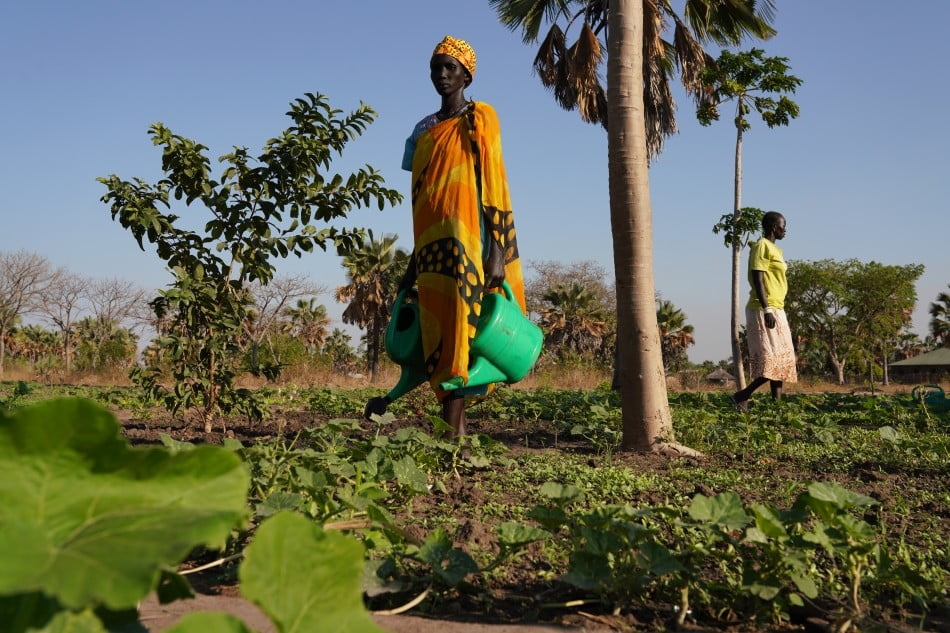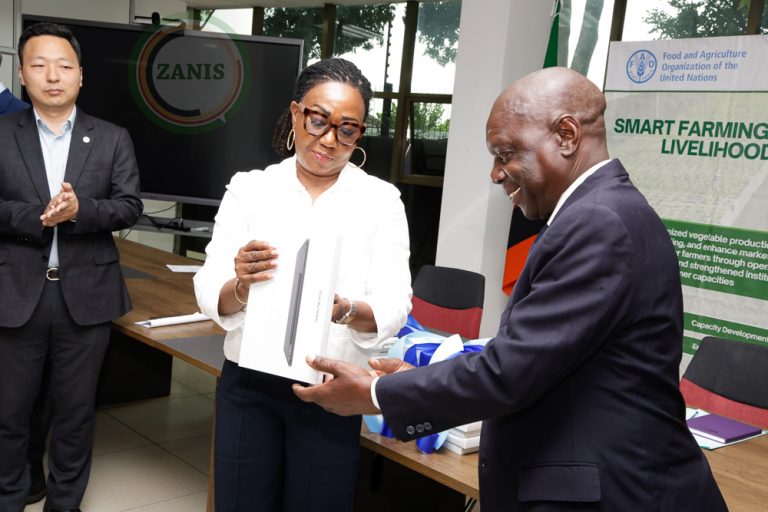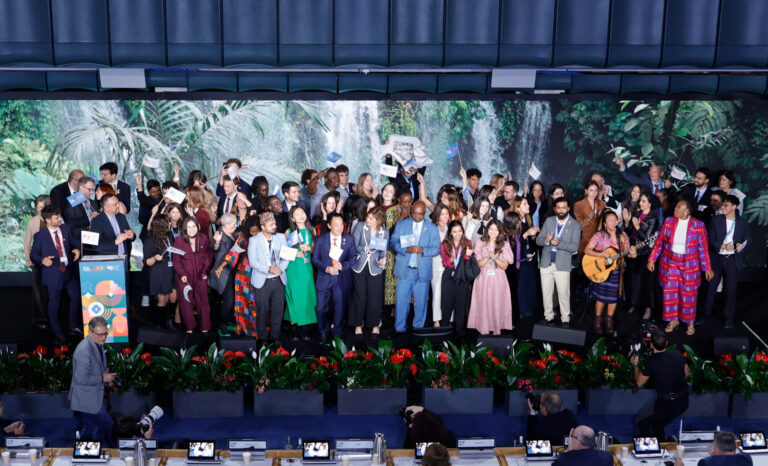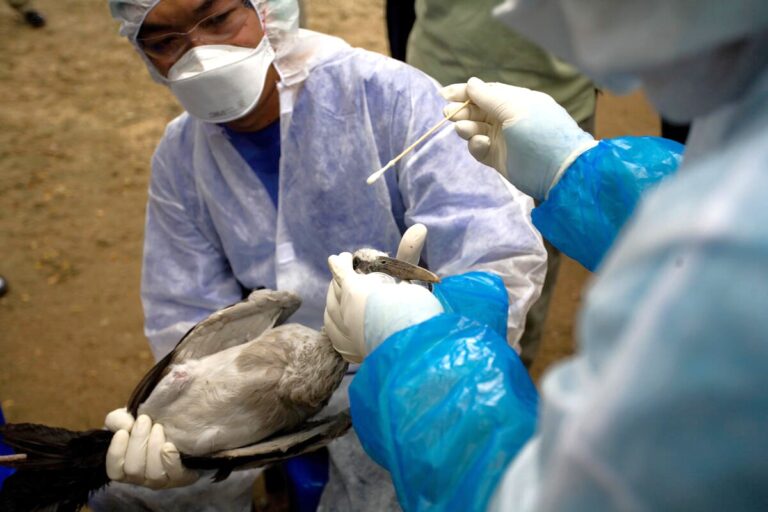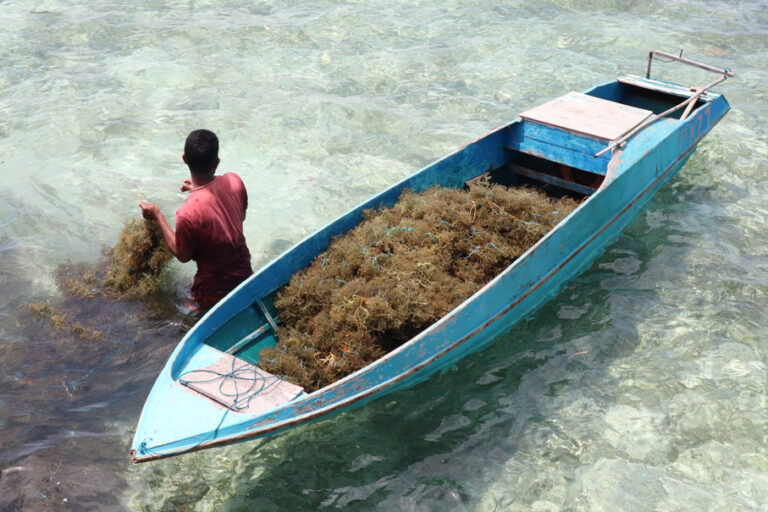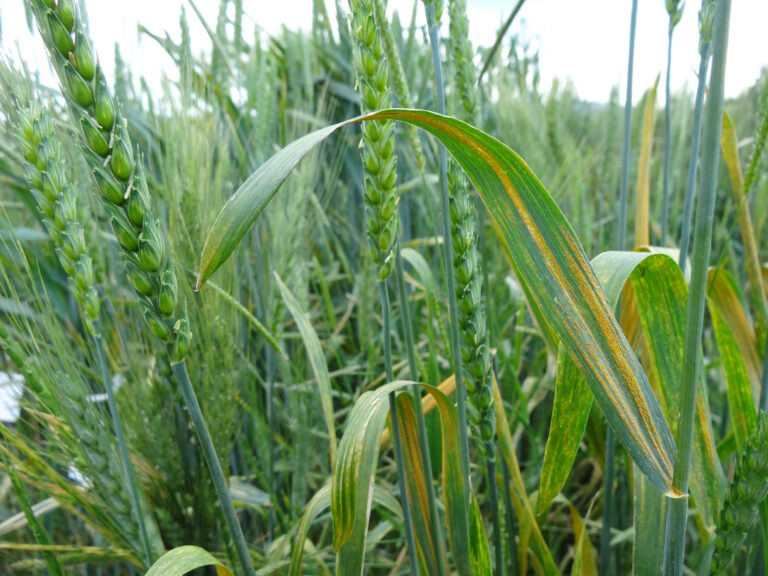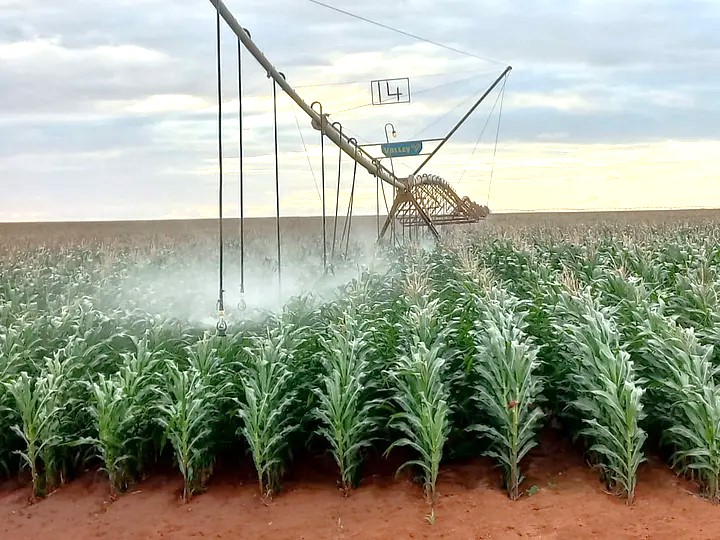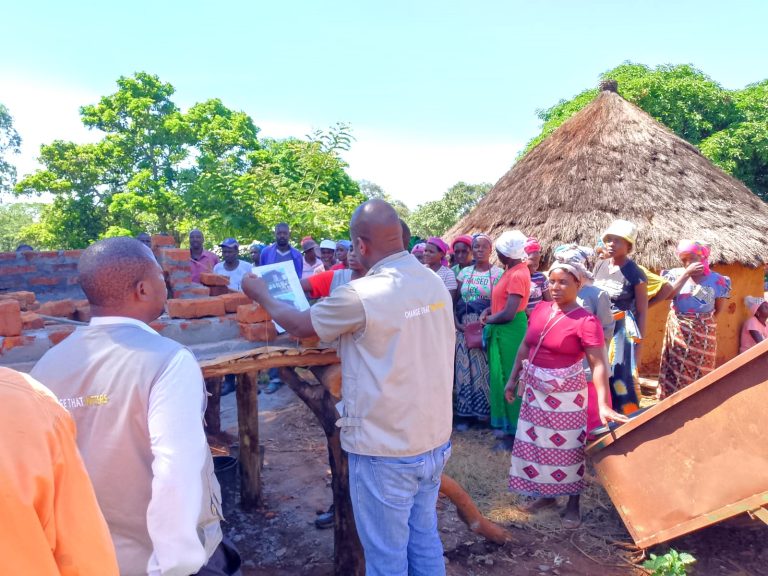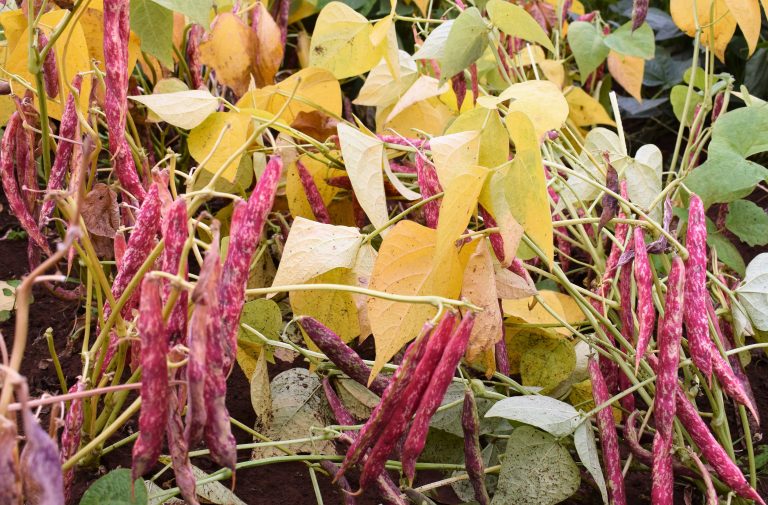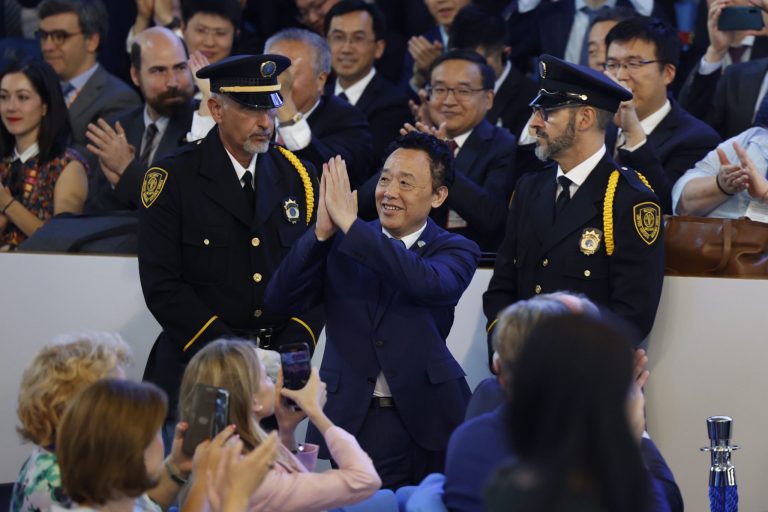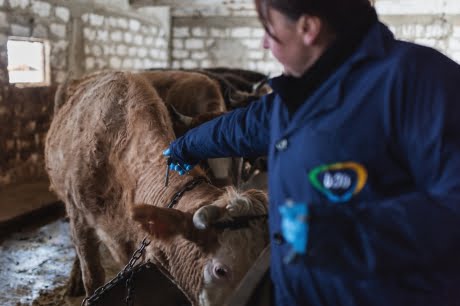“In the Dinka language, there is a saying: men eat first, then women, then children. But here we, as women, we eat beside the men.”
Apande Dut smiles as she says this, sitting with a large group of women under the shade of a mango tree, shelling peanuts while nursing her children. The women are all members of a female-dominant farming group in the town of Rumbek, South Sudan.
Up until 2018, both Apande and her fellow community member and friend, Agok, farmed on their own, but their farming knowledge was limited and with such difficult farming conditions, the food grown was never enough.
This is an area that also struggles with conflict and violence, making it hard for farmers to access markets. In fact, only 31 percent of households in the Lakes State have access to food year-round.
When Apande and Agok heard about a nearby farming group, established through the ‘Sustainable Agriculture for Economic Resiliency’ project, run by FAO and funded by the United States Agency for International Development (USAID), they decided to join.
‘Nhom Lau’ means freedom
Apande and Agok’s group is made up of 28 women and just two men, a rarity in South Sudan’s traditionally male-dominant society. They named the group Nhom Lau, meaning ‘freedom’ in their local language, Dinka, to represent the financial and social freedom they found through this group and the livelihoods it supports. With the project’s help, they learned agricultural best practices, shared information and began to produce and earn more – all whilst giving each other encouragement and support to persevere.
Through sessions led by FAO, the group received agricultural tools, information and trainings on agronomy, as well as business skills that translated into higher production and diversification of their produce. The team now produces vegetables and groundnuts about 1 kilometre outside Rumbek.
Thanks to this FAO-USAID project, the community support was also financial. To further their progress, the group also introduced a savings and loans scheme, quite an uncommon concept in South Sudan. In an area that does not have easy access to formal financial services, group initiatives like these are key to providing simple savings and loan facilities to help members invest in their land and increase their profitability.
They began a savings box for the group, to which each member contributes 320 South Sudanese pounds (USD 1.30) a week. Annually, the group saves a total of 340 800 South Sudanese pounds (around USD 1 200). They are also looking to establish an official bank account and use the money to start purchasing their own more modern farming equipment, cutting the time and labour required and increasing their harvesting capabilities.
Not just financial support, but emotional support too
But for some of the women, the group’s support has been more than financial – it has been truly life changing. Some time ago, Agok had been told that, due to medical complications, she could not conceive children. Devastated, Agok turned to the women of her group. The group decided to use some of their funds to help her travel to one of South Sudan’s largest cities, Wau, to see a doctor. With the funding, Agok was able to get medical treatment, and she currently has three healthy children.
This kind of support and solidarity is just one of the many reasons the women say they prefer being in the group over farming on their own. “As we work, we can discuss women’s issues that we normally cannot talk about and offer each other advice and help,” says Agok.
The women in Apande and Agok’s group are all married, but their husbands work with livestock which often keeps them away from their families, leaving the women to manage large households on their own. Having their own sources of income helps give the women more independence.
“When we cultivate together, we don’t need to rely on men. Before joining the group, I had no choice in financial decisions, but now I have my own income. When my husband is away with the cattle, I can support my family on my own,” Agok says happily.
Before joining the group, many of them sold alcohol, which can be a dangerous profession as the customers, usually male, would at times become violent leave or without paying. The vegetable group allows them to make an income safely and with the support of other women. Agok and her fellow women feel strongly about the amount of support the group provides.
In areas like Agok and Apande’s in South Sudan, farming is tough – and even tougher for women, who face the challenge of raising a family and managing a household, all while making a living through farming. Community farming groups offer the opportunity for women to lean on each other and pool their resources, improving food and financial security for their families and communities. But to these women, the group means much more than that. It represents ‘Nom lau’ – the freedom to make their own choices and build better lives. Nothing is more fundamental than this in reaching worldwide gender equality and ensuring food secure futures.


